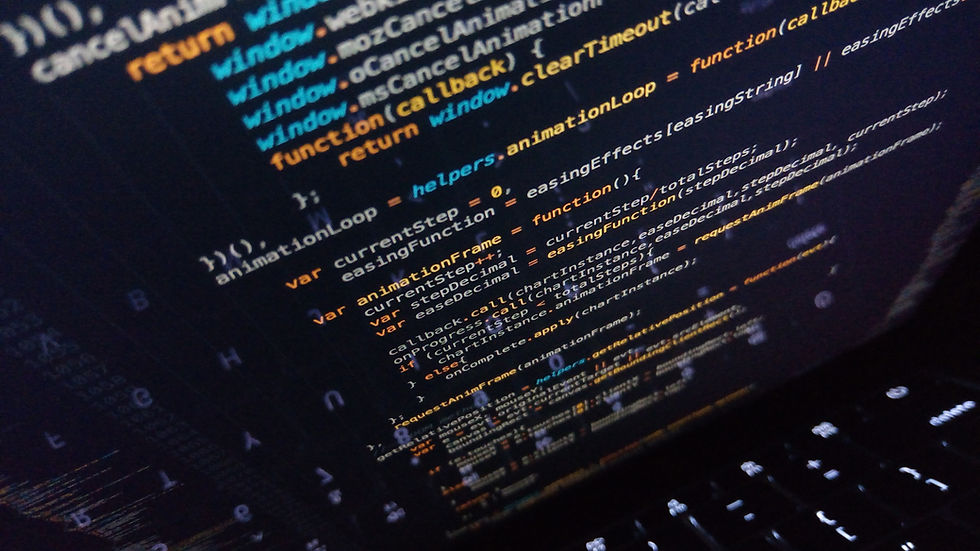What Problems Can a Code Similarity Checker Solve for Developers?
- Codequiry

- Jun 19, 2025
- 4 min read
Updated: Jun 26, 2025
In a world where development teams collaborate across time zones and coding happens at lightning speed, ensuring the uniqueness and integrity of code is more important than ever. That's where a code similarity checker becomes an essential tool in a developer's arsenal.
From preventing accidental duplication to identifying AI-written or plagiarized code, tools like Codequiry offer developers the insight and peace of mind they need to keep their codebase clean, original, and secure.

Understanding Code Similarity Checkers
What Is a Code Similarity Checker?
A code similarity checker is a tool designed to compare pieces of code to detect duplication, plagiarism, or structural similarity. It’s especially useful when multiple contributors are involved or when verifying the originality of code submissions.
How It Works
Most tools use a combination of pattern recognition, abstract syntax trees (AST), and database comparisons to analyze similarities in logic, structure, and function—not just exact word matches.
Codequiry, for example, uses advanced algorithms to detect both human and AI-generated code, comparing it against public repositories and proprietary databases.
Common Developer Challenges Solved by Code Similarity Tools
Unintentional Code Duplication
When working on large teams or multiple modules, developers can unknowingly rewrite logic that already exists. A code similarity checker helps identify repeated code so teams can refactor and maintain DRY (Don’t Repeat Yourself) principles.
Team Collaboration and Merge Conflicts
With parallel branches and multiple contributors, codebase redundancy is common. Tools like Codequiry help developers identify overlapping code, preventing merge conflicts and enhancing code cohesion.
Maintaining Code Quality in Large Projects
As projects scale, it becomes harder to keep track of who wrote what and where it’s being reused. A code similarity checker ensures a uniform standard and flags inconsistencies before they grow into technical debt.
Preventing Code Plagiarism
In both freelance and academic settings, plagiarism remains a concern. Codequiry helps identify if code has been lifted from another source—ensuring accountability and ethical development practices.
Detecting Reused Open-Source Code
Developers often use open-source code snippets to speed up development. A code similarity tool like Codequiry can detect when and where that reuse occurs, providing transparency and avoiding license violations.
Codequiry: The Developer’s Trusted Code Similarity Checker
Why Developers Rely on Codequiry
Codequiry goes beyond basic string comparisons. It detects structural, logical, and even AI-influenced patterns in code. It’s fast, accurate, and built for modern development workflows.
AI Code Detector Capabilities
One of the standout features of Codequiry is its AI Code Detector. Developers can now identify if submitted code was generated by models like ChatGPT, ensuring originality and intellectual integrity.
Academic, Freelance, and Enterprise Use Cases
Academics: Prevent student plagiarism in programming assignments.
Freelancers: Prove code originality to clients.
Enterprises: Maintain a clean and unique codebase across large teams.
Real-World Applications in Development Environments
Code Reviews and Audits
Whether you’re conducting an internal audit or preparing for external review, a code similarity checker highlights red flags that need attention.
Version Control and CI/CD Pipeline Checks
Integrate Codequiry into your CI/CD pipeline to automatically scan for similarity issues before pushing to production.
Onboarding and Training New Developers
Help new team members understand the codebase better by avoiding repetitive code and guiding them to existing functions that already solve the same problem.
Advantages of Using a Code Similarity Checker
Saves Time and Resources
Eliminating redundant code means smaller, more efficient codebases and less time spent debugging or rewriting the same logic.
Improves Code Security
By identifying potentially copied or unauthorized code, you reduce the risk of vulnerabilities being introduced from third-party sources.
Boosts Code Maintainability
Similar or duplicated code is harder to maintain. Identifying and refactoring it leads to better long-term maintainability and performance.
Choosing the Right Code Similarity Checker
What to Look For
Accuracy and speed
AI detection capability
Multi-language support
Repository and database coverage
Integration with development environments
Why Codequiry Stands Out
With its focus on both traditional plagiarism detection and AI-written code analysis, Codequiry is a leader among code similarity checkers. Whether you're a solo developer or part of a large enterprise team, it scales with your needs.
Conclusion
In today’s fast-paced development world, staying on top of your code’s originality isn’t just good practice—it’s essential. From avoiding accidental duplication to catching AI-written or plagiarized code, a code similarity checker like Codequiry empowers developers to write smarter, cleaner, and more ethical code.
By integrating tools like Codequiry into your workflow, you ensure every line of code adds genuine value, not just repetition.
FAQs
1. Can code similarity checkers detect AI-generated code?
Yes, tools like Codequiry come with built-in AI code detectors that identify patterns linked to models like ChatGPT or Copilot.
2. Is Codequiry suitable for small development teams?
Absolutely. Codequiry is scalable and useful for solo developers, startups, and large enterprise teams alike.
3. How does Codequiry compare with traditional plagiarism tools?
Unlike basic checkers, Codequiry analyzes code structure and logic, not just line-by-line matches, and includes AI detection capabilities.
4. Can I integrate Codequiry with GitHub or GitLab?
Yes, Codequiry offers integration options for version control systems and CI/CD workflows to automate code checking.
5. How often should teams use code similarity checkers?
Ideally, code should be checked during every major commit, before pull requests, and during regular code reviews or audits.



Comments